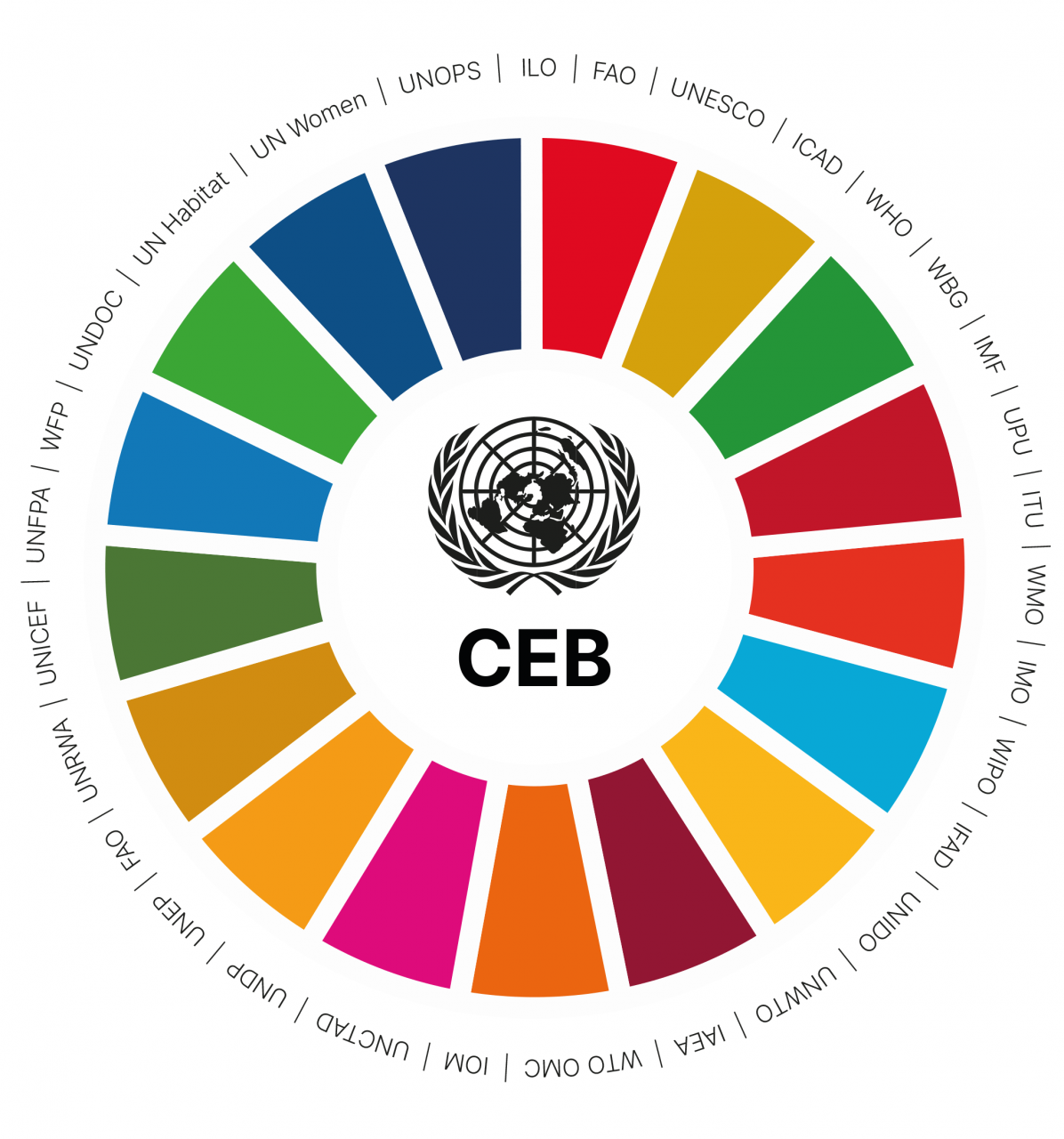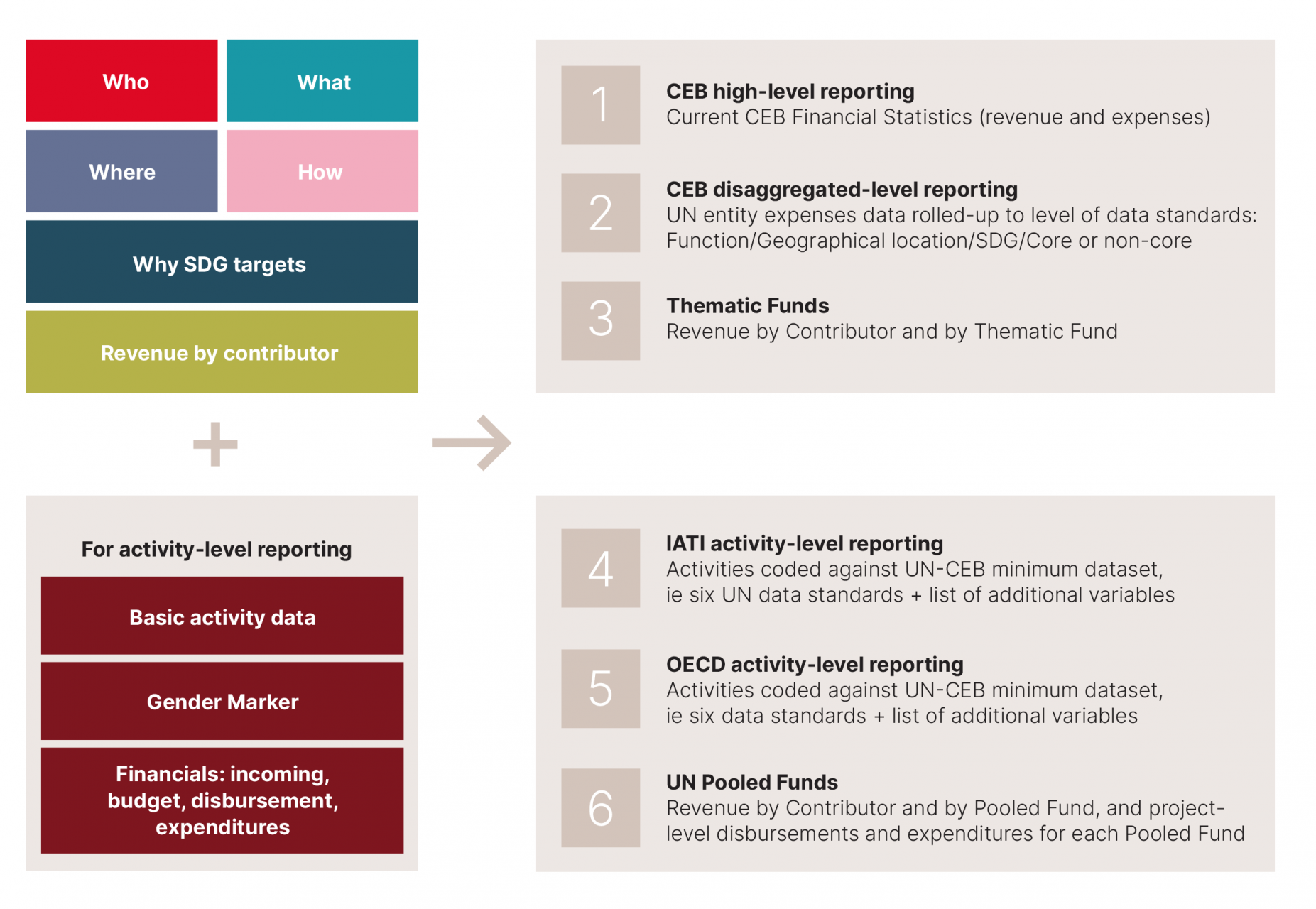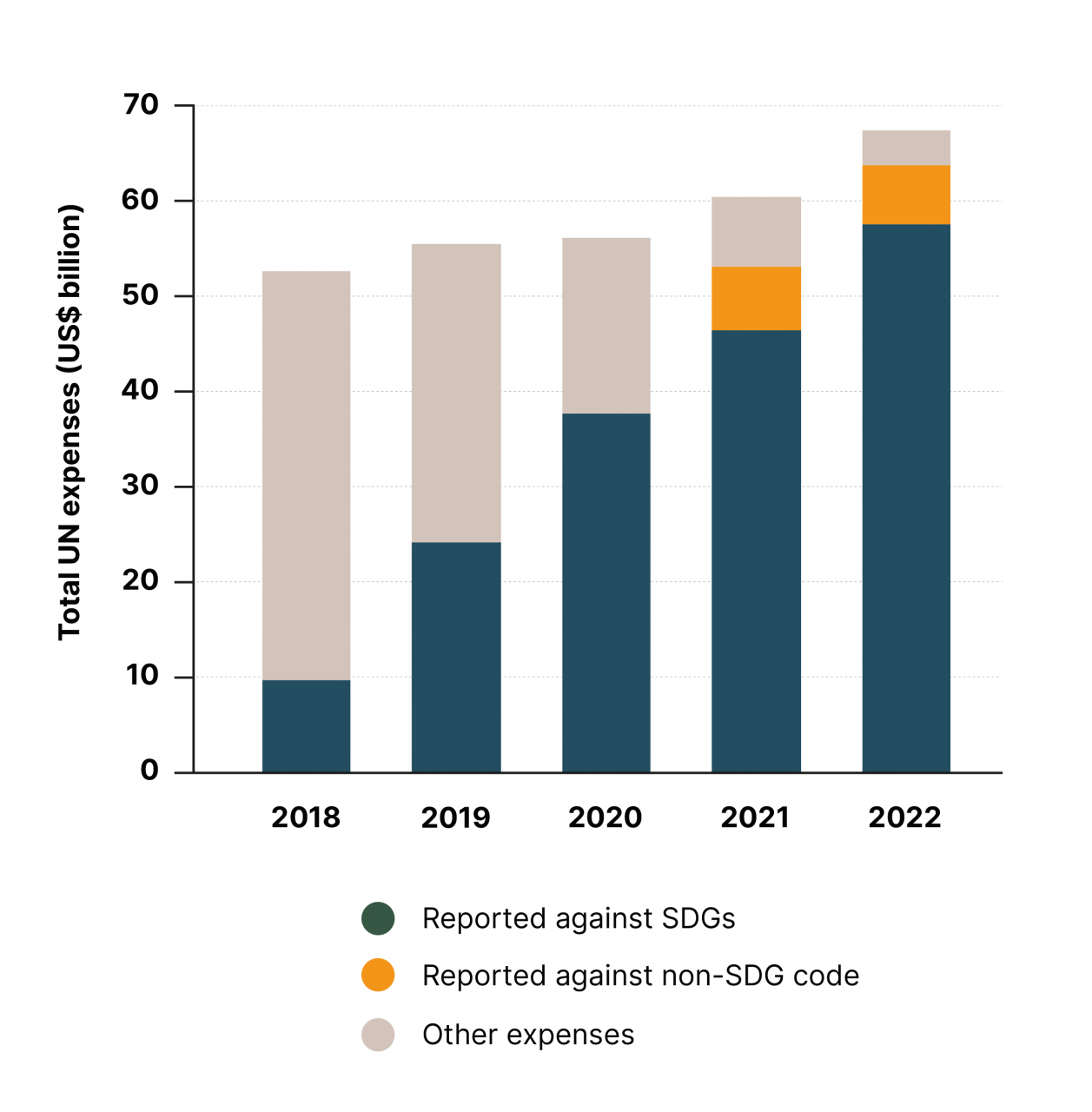Under the chairmanship of the United Nations Secretary-General, the Chief Executives Board (CEB) brings together the Executive Heads of the UN, its 12 funds and programmes, the 15 specialised agencies, and three related organisations. The CEB fosters a coherent approach to policy and management matters, enhancing UN system-wide coordination in support of intergovernmental mandates. The CEB is committed to supporting Member State efforts aimed at strengthening the multilateral system and regaining traction in the achievement of the Sustainable Development Goals (SDGs). Through its High-Level Committee on Management (HLCM), the CEB strives to foster systemic transformation through, among other things, stronger performance and results orientation; better data, analysis and communications; and innovation and digital transformation.
Introduction
CEB Secretariat is the UN inter-agency entity responsible for supporting the CEB’s work, and as such is the UN system’s highest-level coordination forum when it comes to program-matic, policy and management issues. The CEB Secretariat collects and publishes revenue, expense and budget data from all UN system organisations on an annual basis.
The UN Data Cube, a joint initiative of the CEB’s HLCM and the UN Sustainable Development Group (UNSDG), is one of the three strategic data initiatives recognised in the 2020 Data Strategy of the Secretary-General for Action by Everyone, Everywhere with Insight, Impact and Integrity.45 The initiative’s long-term goals are to improve the quality of financial data reported to the CEB and ensure the UN system has timely, reliable, verifiable and comparable system-wide and entity-level financial data aligned with the SDGs, in order to ‘make better decisions and deliver stronger support to those we serve’.
The Data Cube initiative’s central component during the period 2017–2021 was the establishment and implementation of the Data Standards for UN system-wide reporting of financial data. A core principle of the initiative is ‘maximising transparency and minimising effort’.
Background to the Data Cube strategy 2022–2025

Chief Executives Board for Coordination (CEB).
In December 2021, the HLCM’s Finance and Budget Network approved the UN Data Cube strategy 2022–2025, aimed at taking the Data Cube initiative to the next level. The new strategy’s ultimate ambition is to ensure a fully-fledged UN system-wide Data Cube featuring financial data that can be disaggregated for each SDG in every country. Towards this end, the strategy builds towards having six complementary UN system-wide financial data cuts. Together, these will provide UN stakeholders with a transparent, comprehensive snapshot of UN system-wide revenue and expenses, enabling better analytics and evidence-based decisions.
Figure 38 illustrates the elements underpinning the strategy. Each UN entity will construct a master dataset incorporating all the variables included in the UN-CEB minimum dataset (on the left side of the figure). Having done so, the UN entity can then slice-and-dice the master dataset to produce the data necessary to report on each of the six data cuts shown on the right-hand side of the figure.
Elements underpinning the UN Data Cube strategy 2022–2025

Chief Executives Board for Coordination (CEB).
Implementation of year two of the Data Cube strategy 2022–2025
The Data Cube strategy 2022–2025 reflects a strategic, forward-looking perspective on UN system-wide financial reporting. As the results listed below demonstrate, year two of the strategy saw continued efforts to build on previous successes and address persistent challenges.
Enhanced monitoring of CEB financial data: A monitoring tool was developed to measure and track progress of the Data Cube strategy’s implementation, with the results from 2022 reaffirming the significant advances made in recent years towards comprehensive, quality reporting by UN entities. The tool assists the CEB Secretariat in providing feedback to UN entities regarding areas where they have made progress and areas that require improvement. Some highlights of these results are provided in Box 4.
Continuous improvement: The introduction of mandatory expenditure reporting for enabling functions in the ongoing collection of the 2023 financial data means progress is being made towards commitment 13 of the 2019 Funding Compact, which calls for improved comparability of cost classifications and definitions. The CEB Secretariat recog-nises that some entities may only be in the initial stages of establishing methodologies that support the reporting of enabling functions, and so is conducting consultations with UN organisations. This will enable a better understanding of how enabling costs are defined, thereby enhancing the guidance issued to entities regarding the identification and allocation of these costs.
More comprehensive access to data: The CEB Secretariat has continued to enhance the CEB website’s functionality as the central place for Member States and other data users to find UN system-wide financial data. Disaggregated data on funding flows at entity and system-wide level can be accessed on the CEB website in a user-friendly format, including visualisations and the option of downloading datasets in Excel or comma-separated values (CSV) formats.46 More comprehensive data and additional interactive charts were also made available through the CEB website in 2023, including revenue by contributor type and data on thematic funds.
Maintaining partnerships: The CEB Secretariat continues to foster strategic partnership opportunities with the International Aid Transparency Initiative (IATI), the Organisation for Economic Cooperation and Development (OECD), the International Forum for Total Official Support to Sustainable Development (TOSSD) and other important partners. These partnerships assist with efforts to maximise the transparency of UN system financial data, with the ultimate aim of ensuring quality UN system-wide financial data is available to users on both the CEB website and other data platforms. A key achievement in this respect was agreement on an UN-CEB minimum dataset that, alongside the harmonised code lists, will enable UN entities to (re)use the same dataset in reporting their data to the CEB, IATI and OECD.
UN pooled funds: Continued collaboration with the UN Multi-Partner Trust Fund Office (MPTFO) focused on enhancing the timeliness and quality of UN inter-agency pooled funds data. An assessment is being undertaken regarding necessary next steps for publishing pooled fund data on the CEB website. Doing so will provide UN Member States with a single place where they can find data on their total contributions to the UN system (through both direct contributions to UN entities and contributions to UN pooled funds).
Areas of continued focus
Continued improvements in the comprehensiveness and quality of UN entity reporting since the introduction of the UN Data Standards are indicative of impactful collaboration across the whole UN system.
In 2024, the CEB Secretariat will continue to address the challenges impacting full achievement of the Data Cube strategy’s objectives. These ongoing efforts include focusing on more strategic goals that balance the needs of various stakeholders, such as data reporters, users and partners. Actions towards this end could include:
- Assessing the degree of success in implementing the UN-CEB minimum dataset, including developments in IATI and/or OECD reporting, and recommending action to ensure datasets remain compatible between CEB, IATI, OECD and TOSSD.
- Considering adjustments to the CEB data platform with a view to introducing far more granular data on UN system-wide expenses. The consolidated UN system-wide disaggregated data would ideally show how much each UN entity, as well as the UN system as a whole, spends on each function, in each geographical location and against each SDG target, as well as which source of funding is used.
- Trying to better understand the reporting requirements of UN system organisations, in recognition of the reporting burden.
- Finalising a draft common methodology for determining the top financial contributors to the UN system, in collaboration with the Peacebuilding Support Office (PBSO) and MPTFO.
- Liaising with the UNSDG Development Coordination Office and Department of Economic and Social Affairs (DESA) on the new Funding Compact and its potential future impact on CEB Financial Statistics and the UN Data Standards.
As a final note, it is important to bear in mind that the ambitions of the Data Cube strategy 2022–2025 can only be fully realised if sufficient human and financial resource capacity is secured within the CEB Secretariat to provide the necessary strategic leadership and technical support for implementation and management of the strategy.
Box 4: Improvements in data quality for reporting against the Data Standards, 2018–2023
UN entities: The number of UN organisations reporting financial data to the CEB increased from 34 (2016 data) to 43 (2022 data). This means that 100% of UN system organisations participated in the CEB Financial Statistics exercise for the 2022 financial year.
Expense by UN function: For the 2022 data, 100% of UN entities that reported their expenses by geogra-phical location broke down the data by UN function. In addition, 15 UN entities voluntarily reported their expenses against OECD Common Reporting Standard purpose codes, compared to 13 the previous year.
Expense by geographical location: 100% of UN entities reported their 2022 expenses by geographical location. Moreover, the 2022 data continued to see improvements in the correct use of global codes, rather than codes for countries in which headquarters are located.
Expenses by source of funding: New granularity was introduced for the reporting of expenses funded from core and voluntary non-core contributions, with the CEB Secretariat undertaking additional follow-up with some entities to assure data quality.
Expense by SDG: Overall, 85% of total UN expenses in 2022 were reported against either SDG goals or targets, an increase from 78% in the 2021 data (see Figure 3). A further 9% was reported against the non-SDG code. It is hoped that the three UN organisations that did not report against this standard will do so in the next reporting period. The CEB Secretariat is continuing to follow up with UN entities that do not fully comply with the SDG standard, providing advice on how to ensure full compliance. In 2022, four UN entities provided a further breakdown of their SDG expenses to the country level, representing US$ 19.8 billion of SDG expenses.
Revenue by contributor: A standardised CEB contri-butor list was introduced in 2021 to reduce errors in contributor coding and facilitate data aggregation. This list is reviewed and updated annually.
Gender Equality Marker: In November 2022, a new data standard on the UN Gender Equality Marker (GEM) was approved by the CEB’s Finance and Budget Network for use in activity-level reporting to OECD, IATI and TOSSD. UN Women and the CEB Secretariat continue to collaborate on supporting adoption and implementation of this new reporting standard, which will become mandatory as of 1 January 2026.
Progress in reporting UN expenditure against SDGs

Key insights in a flash
Chief Executives Board for Coordination (CEB).
Endnotes
United Nations, ‘Data Strategy of the Secretary-General for Action by Everyone, Everywhere with Insight, Impact and Integrity, 2020–22’, May 2020, www.un.org/en/content/datastrategy/images/pdf/UN_SG_Data-Strategy.pdf.
UN System Chief Executives Board for Coordination (CEB), ‘Financial Statistics’, https://unsceb.org/financial-statistics.